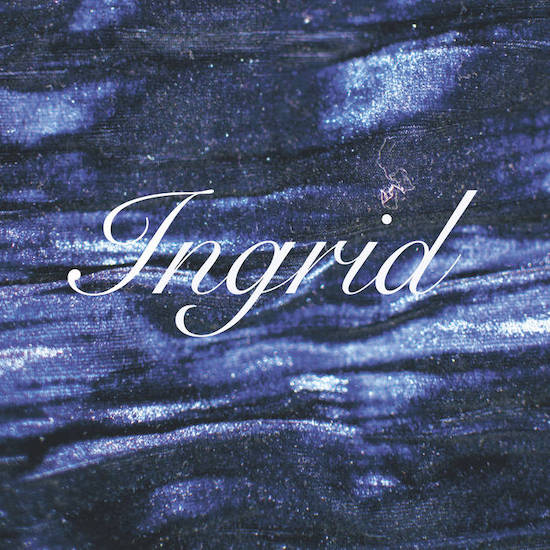On Ingrid, Swedish soundsmith Klara Lewis takes a departure from the layered and emotive low-fi sound collages’ of Too and Ett in favour of a more mature and serious long-form piece. Using a single instrument Lewis achieves the same feeling of tension between sterile futurism and muddy mysticism that she created with the stark blend of bleeps, glitches and Sufi-chanting of her 2018 collaboration with Simon Fisher Turner.
The humble cello that drives and defines the twenty-minute piece starts off in its purest incarnation, like spring light pouring into an eighteenth-century Viennese court or the image of an old duchess attempting to see if her tired joints can still remember the chords of her youth. Either way there is a sense you have just walked into a private moment that is at once wholesome and slightly uncanny. That uncanniness increases tenfold as the moment gets trapped into a Basinski-style loop, as if a hypnotic spell had been cast over the cello player causing them to mindlessly repeat the chords for eternity.
As the chords continue to chase their own tail, a soft cloud of distortion envelops it in the smoke and mirror of reverberation. It transforms the melodic cello loop into a dynamo that generates its own aura, pulsing it out like surges of healing light emanating out of an arcane beacon. Those hypnotic circles dance and spin before the soft drones that once insulated and caressed the cello begin to feel like it is attempting to smother its brightness. The wrestling match between the stasis-locked loop and creeping ambient contortions becomes the beauty and extended crescendo of the twenty-minute song, the tangle of two sonic bodies, merging and at the same time resisting each other.
While the core melody does hum and fluctuate in subtle registers throughout, it never loses the blueprint of its original identity, maintaining its dignity amidst the chaos of the ever increasing dissonance like a man refusing to lose his hat in the centre of a hurricane. As the loop gets swept along its astral drift it transforms into a mantra or communion, almost as if there is a message buried in the loop, a secret of the universe that will recall the entirety of a past life’s memories with the right keyword. The longer you consistently listen to it the more it feels like some kind of purification ritual, a sonic treatment to open the vessels and clear the mind.
Ten minutes in the cello loop continues to tread itself as if lost in time, fragmenting and vibrating to the currents of that lawless dimension. Like a fever dream or an otherworldly carousel ride, at once nauseating and therapeutic. Eventually the distortion begins to overpower the cello until it is a faint hum in the background, the distant signal of a lighthouse guiding a ship lost on a foggy ocean. Toward the end you can hear traces of the loop as if submerged grasping for air, drowning in the oscillating black metal static that screams and stretches around it. Eventually the distortion dissipates like a sandstorm suddenly banished by a sorcerer and the naked cello of the beginning remerges out of the white noise still lost in its hypnotic dance with itself, resilient to the onslaught yet somehow changed from the trauma of the drowning.
For such a simple cello melody, Lewis draws an impressive amount of emotion and feeling out of it, which is what makes its defiance in the face of the ever-encroaching blanket of distortion that much more profound. Ingrid becomes a musical near-death experience that is both exhilarating and at the same time beautifully disturbing.


